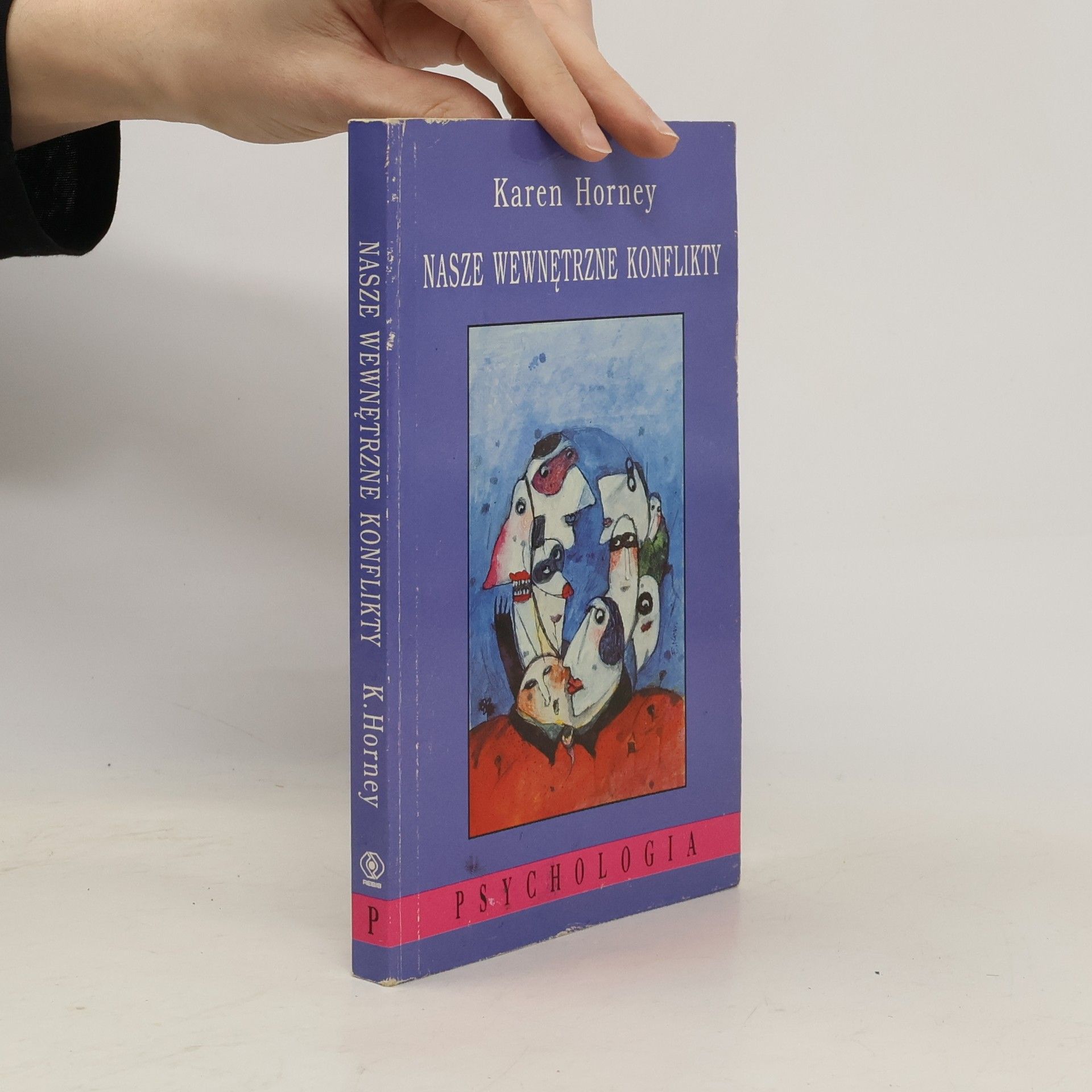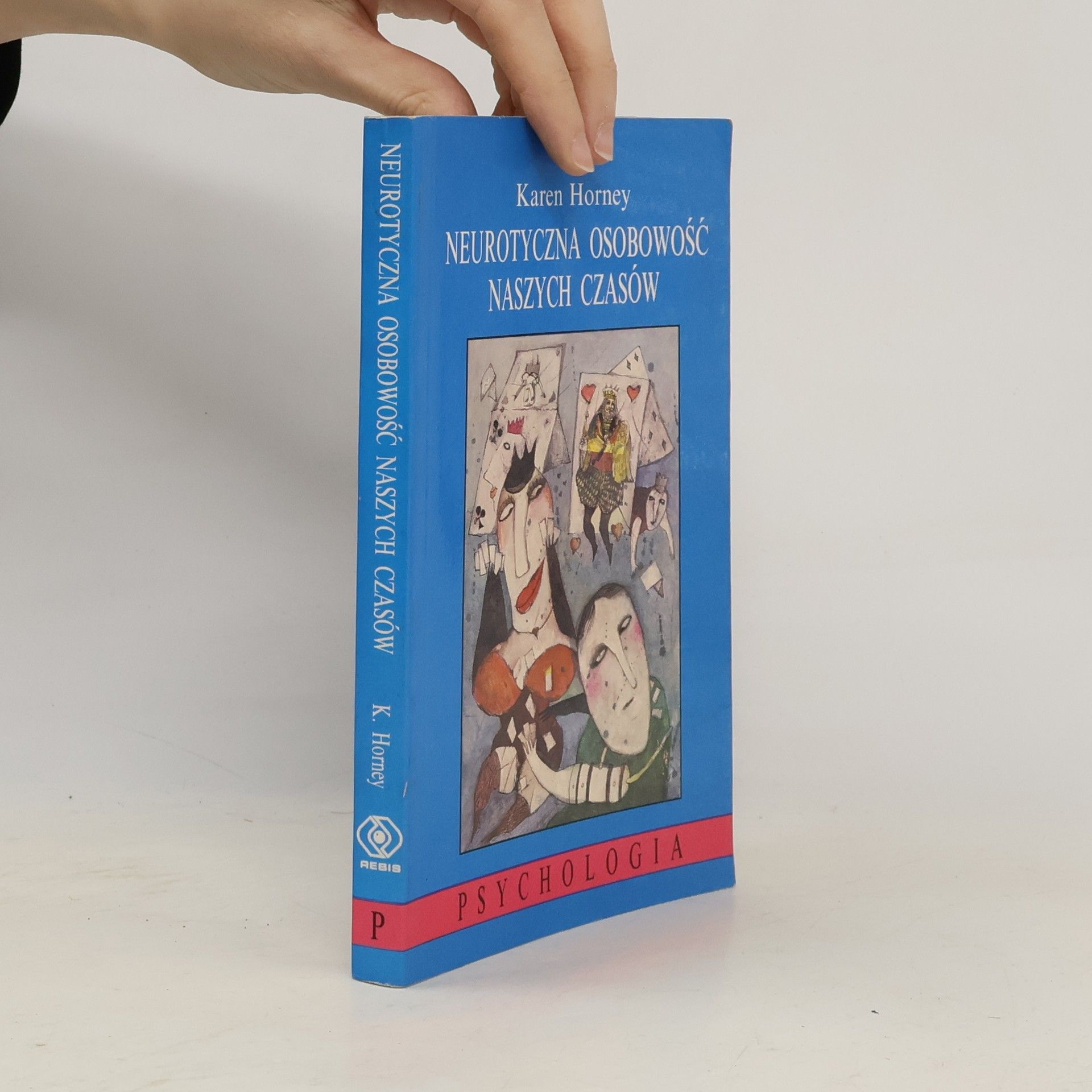Książka ukazuje skomplikowany mechanizm nerwicy, rozmaite jej rodzaje i wskazuje na sposoby jej leczenia. Nerwica, jedna z najpopularniejszych chorób naszego wieku, jest zaburzeniem psychicznym, które charakteryzuje się występowaniem lęków i środków obronnych stosowanych przeciwko nim oraz poszukiwaniem rozwiązań kompromisowych w sytuacjach konfliktowych; jest zaburzeniem stosunku jednostki do siebie samej oraz otoczenia. Horney w swej książce pokazuje cały skomplikowany mechanizm nerwicy, rozmaite jej rodzaje, a poprzez wskazanie sposobów wyleczenia ułatwia czytelnikowi wejrzenie we własną psychikę. Zachęca do analizy swego postępowania i uczy, że człowiek może się naprawdę rozwijać tylko wówczas, gdy przyjmie całkowitą odpowiedzialność za siebie.
Karen Horney Book order (chronological)
Karen Horney was a German psychoanalyst whose theories questioned some traditional Freudian views, particularly his theory of sexuality, as well as the instinct orientation of psychoanalysis and its genetic psychology. As such, she is often classified as a Neo-Freudian thinker. Her work offers an alternative perspective on the psyche, emphasizing sociocultural influences.

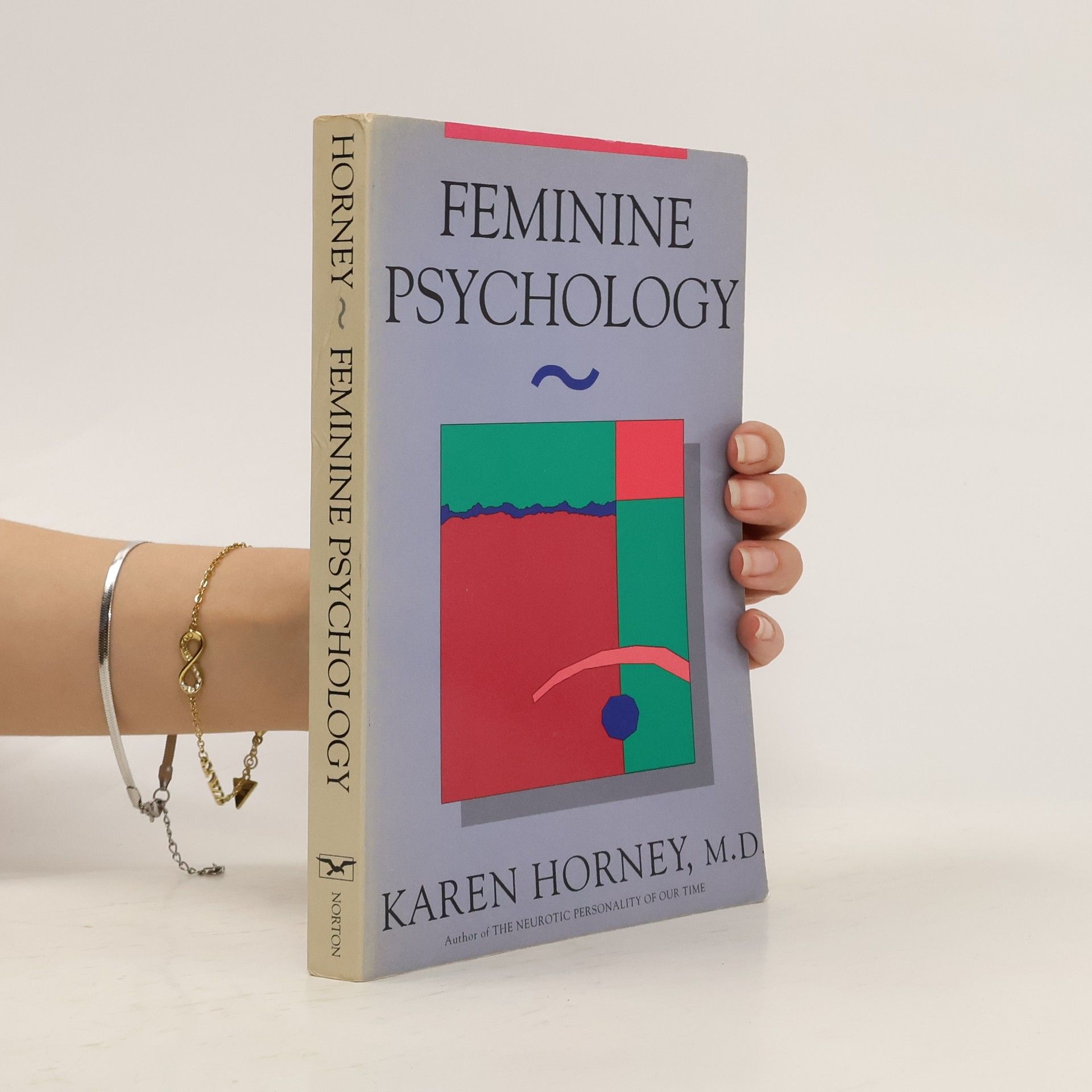

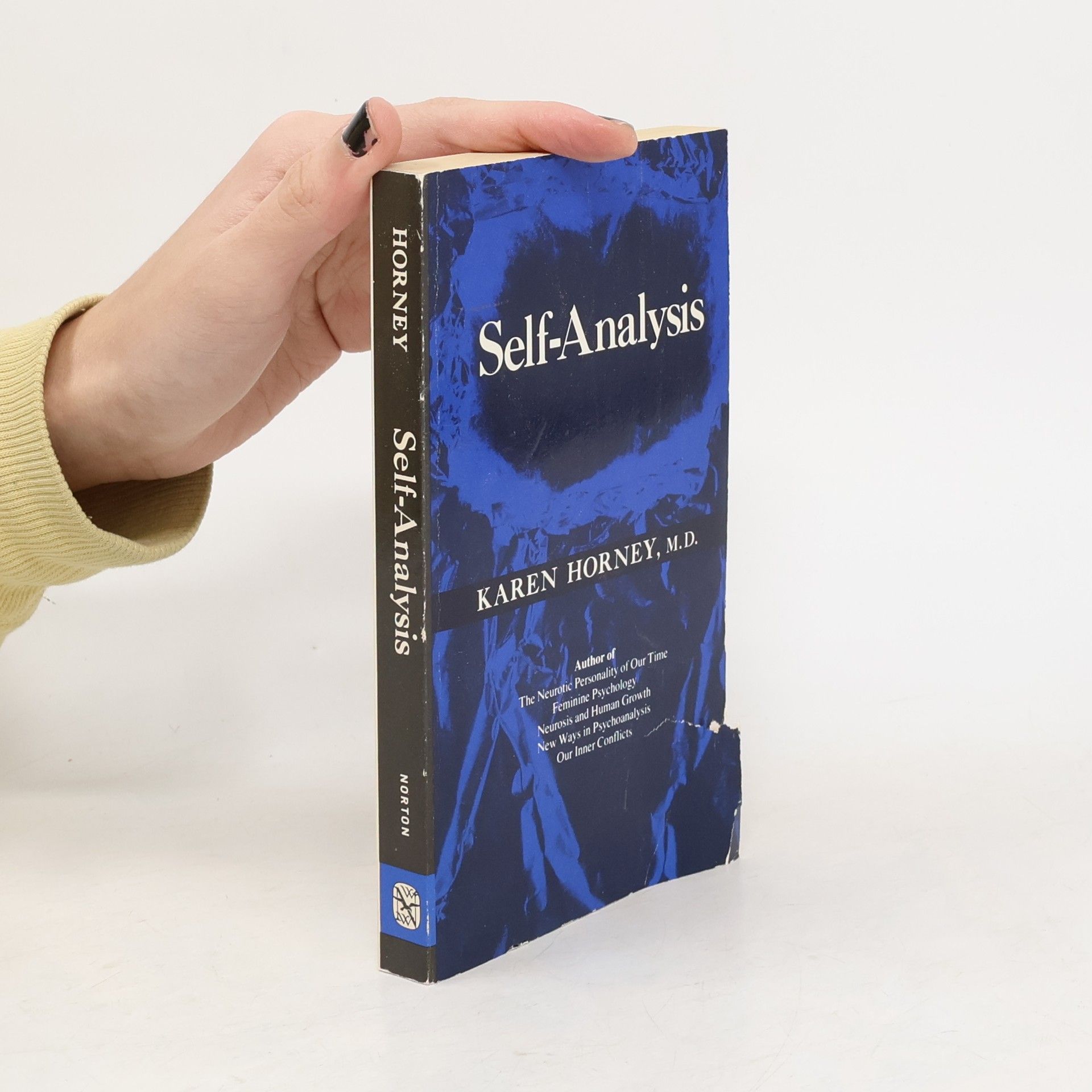
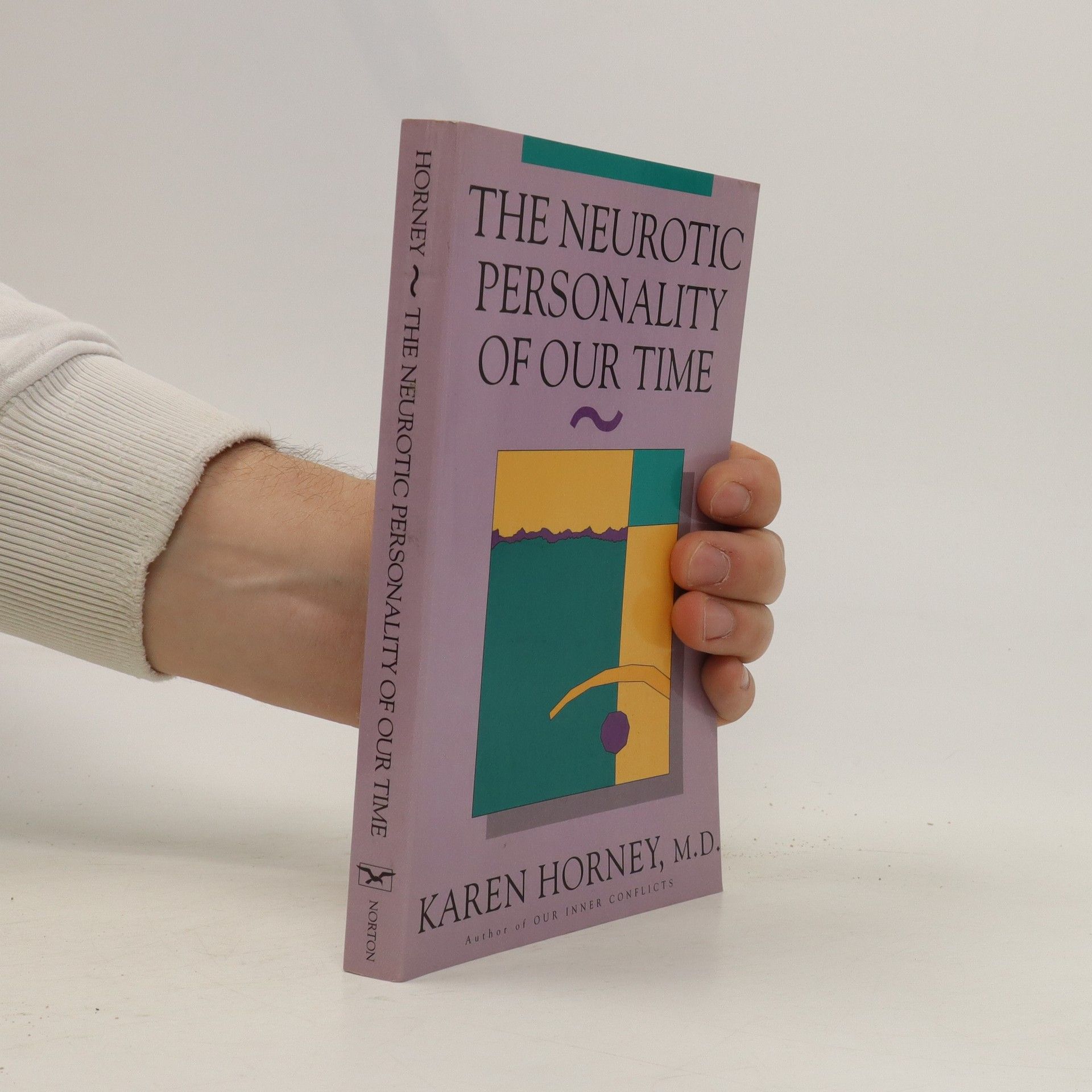


Are You Considering Psychoanalysis?
- 268 pages
- 10 hours of reading
The book focuses on the revival of classic literature from the early 1900s and earlier, emphasizing the scarcity and rising costs of these original works. It aims to make these timeless texts accessible by republishing them in high-quality, modern editions that preserve the original text and artwork, catering to readers who appreciate historical literature.
New Ways in Psychoanalysis
- 318 pages
- 12 hours of reading
Neuroses are portrayed as a unique struggle for survival in challenging circumstances, as explored by Karen Horney. She emphasizes the transformative potential of psychotherapy in helping individuals overcome maladaptive thoughts and behaviors. Drawing on her clinical experiences, Horney presents psychological concepts with clarity and compassion, making complex ideas accessible to readers.
Neurotyczna osobowość naszych czasów
- 238 pages
- 9 hours of reading
Jedna z podstawowych lektur na studiach psychologicznych. Horney przedstawia obraz neurotyka, z jego konfliktami, lękami, cierpieniem I trudnościami, jakie ma on z samym sobą oraz w kontaktach z innymi ludźmi, a także próby ich rozwiązania. Jest to podsumowanie pierwszych doświadczeń zdobytych przez autorkę w pracy klinicznej nad nerwicami, a jednocześnie ilustracja pewnego etapu rozwoju myśli neopsychoanalitycznej. Do dziś jedna z podstawowych lektur na studiach psychologicznych.
Our Inner Conflicts
- 250 pages
- 9 hours of reading
Here Karen Horney develops a dynamic theory of neurosis centered on the basic conflict among attitudes of moving forward moving against, and moving away from people.
Neurose und menschliches Wachstum - Deutsche Originalausgabe
- 432 pages
- 16 hours of reading
das Ringen um Selbstverwirklichung Dt. Originalausg. 1975 432 S. Taschenbuch Kindler,
Neurosis and Human Growth
The struggle toward self-realization
One of the most original psychoanalysts after Freud, Karen Horney introduced concepts such as alienation, self-realization, and the idealized image, emphasizing the role of culture and environment in psychoanalysis. Born in Hamburg, Germany, in 1885, she earned her medical degree from the University of Berlin in 1913. Horney studied psychiatry at Berlin-Lankwitz from 1914 to 1918 and taught at the Berlin Psychoanalytic Institute until 1932. She participated in significant international congresses, including a discussion on lay analysis chaired by Freud. In 1932, she moved to the United States and served as Associate Director of the Psychoanalytic Institute in Chicago for two years. In 1934, she joined the teaching staff of the New York Psychoanalytic Institute and later co-founded the Association for the Advancement of Psychoanalysis and the American Institute for Psychoanalysis in 1941. In her work, Horney examines the neurotic process as a deviation from healthy growth, detailing stages of neurotic claims, inner dictates, and the solutions individuals adopt to manage conflict through emotional attitudes like domination or dependency. Her insights reveal the forces that influence personal potential. This 40th Anniversary Edition features a new preface by Stephanie Steinfeld, Ph.D., and Jeffrey Rubin, M.D.


